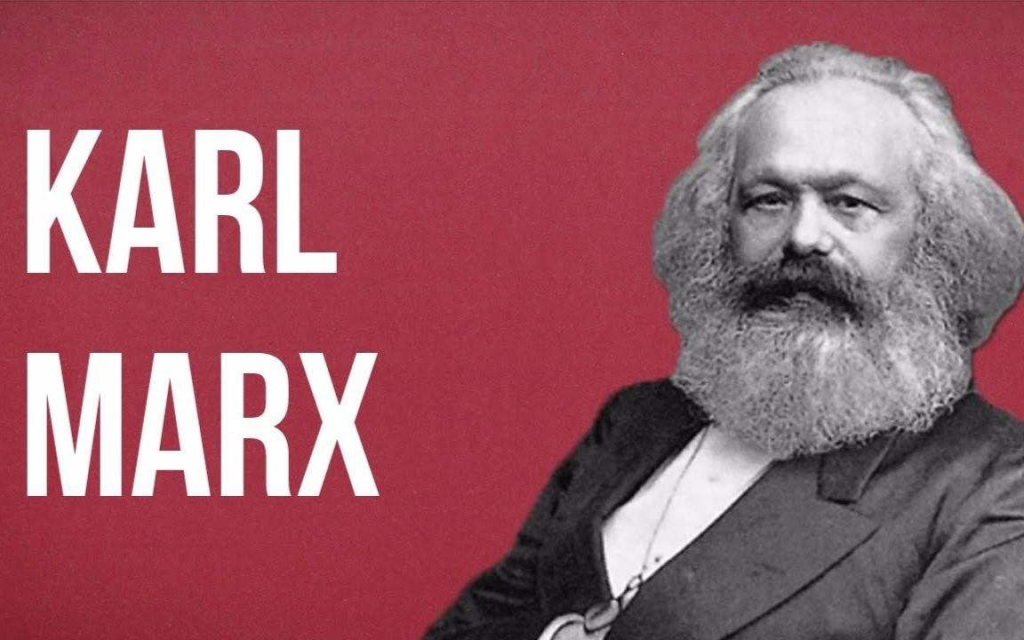Introduction
In Modern life, we can basically divide the world’s political system into capitalism and socialism. Although a country politics sometimes complex than the system. For example, China’s one country, two systems and It combines market economy and socialist social architecture. It would be too complicated to look at it from a sociological and political perspective. My thesis will not discuss in this way. I will briefly demonstrate the idea of Karl Marx’s political philosophy. Then to analyze whether it is suitable for today’s society from a historical perspective.

What is Karl Marx’s political philosophy
Karl Marx’s political philosophy always been called as Marxism. Which a thoughtful understanding on politics, economy and sociology. His political philosophy, socialism, or communism, is often placed on the opposite side of capitalism. He first published his idea in “The Communist Manifesto”(1840) by him and his friend Friedrich Engels. His views provide a new ideology for the world. “The whole of his work is a radical critique of philosophy, especially of G.W.F. Hegel’s idealist system and of the philosophies of the left and right post-Hegelians. It is not, however, a mere denial of those philosophies. Marx declared that philosophy must become reality. One could no longer be content with interpreting the world; one must be concerned with transforming it, which meant transforming both the world itself and human consciousness of it. This, in turn, required a critique of experience together with a critique of ideas.” In his era, the first industrial revolution is almost over. The modern society construct by capitalism and free markets has basically taken shape. And then comes the class struggle. In his point of view, he thinks that” the bourgeois relations of production are the last contradictory form of the process of social production, contradictory not in the sense of an individual contradiction, but of a contradiction that is born of the conditions of social existence of individuals; however, the forces of production which develop in the midst of bourgeois society create at the same time the material conditions for resolving this contradiction. With this social development the prehistory of human society ends.” In capitalism, the inequality between supply and demand is the greatest contradiction and alienation. Karl Marx thinks Society doesn’t need class. Unlike Plato’s utopia in” Res Publica” and Hegel’s idealism. Karl Marx more values materials. He was not an empiricist. He believes that the course of history does not depend on a hero or a minority, but on the majority. So there is no so-called elite in his political philosophy. His political philosophy is also highly respected by the working class. The vision of socialism is that all people are equal. Without privilege, everyone enjoys the same resources.
The rise and collapse of Soviet Union(cold war)
After Marx, Marxism brought great influence and impact to people. This new ideology is increasingly being incited to be the antithesis of capitalism and Liberal Art. After the Russian Revolution, the Soviet Union inherited this ideology. “The person who originally introduced Marxism into Russia was Georgy Plekhanov, but the person who adapted Marxism to Russian conditions was Lenin.” The Soviet Union operated a planned economy, allocating resources on demand rather than free market. But the planned economy is to idealism. And based on the material enrichment and the high intellectual mindset of people.Karl Marx did not deny capitalism, he believed that when people accumulated a lot of wealth through capitalism can be transformed into socialism. Unfortunately, neither the Soviet Union nor China experienced capitalism. There was on issue both happened in Soviet Union and China. Which is Resources are not sufficient to allocate reasonably to everyone. Especially in China. At the same time, due to the closure of the media and popular culture, leading to the Soviet Union’s political ecology is relatively closed. Under Stalin, Marxism seemed to be a reason for populism and a political means of a dictator. And Soviet Union collapse in 1991 and China started to Open information and free market in 80s.
Conclusion
In Karl Marx’s idea, philosophy must have its relevance. I think the core idea of Marxism is thoughtful and inflammatory. In this complex age, every schools needs to consider a problem. That is, whether the concept can adapt to the complexity and change of society. I think that’s why the school’s ideology is going to iterate and evolve. I am a supporter of Karl Marx’s materialist view of history. I believe that every schools reflect the essential problem and thinking of that era. I think Marxism is a outdated goal of humanity and it doesn’t fit for modern society.Perhaps Marxism will fit when human morality and wealth reach high levels. But not for present.
Work Cited
Marx, Karl, and Friedrich Engels. The Communist Manifesto. Origami Books, 2020.
Chambre, Henri, and David T. McLellan. Class Struggle. 24 Mar. 2020, www.britannica.com/topic/Marxism/Class-struggle.
History.com Editors. “Karl Marx.” History.com, A&E Television Networks, 9 Nov. 2009, www.history.com/topics/germany/karl-marx.